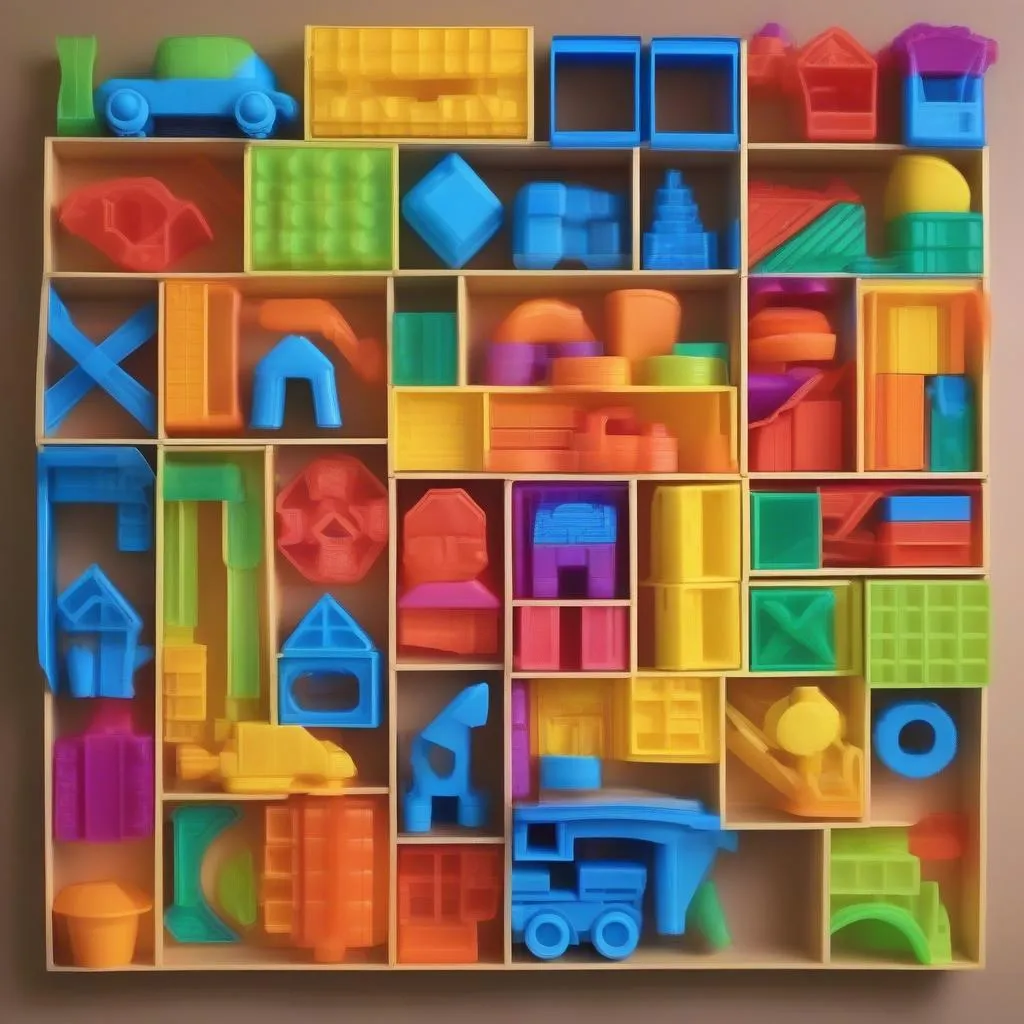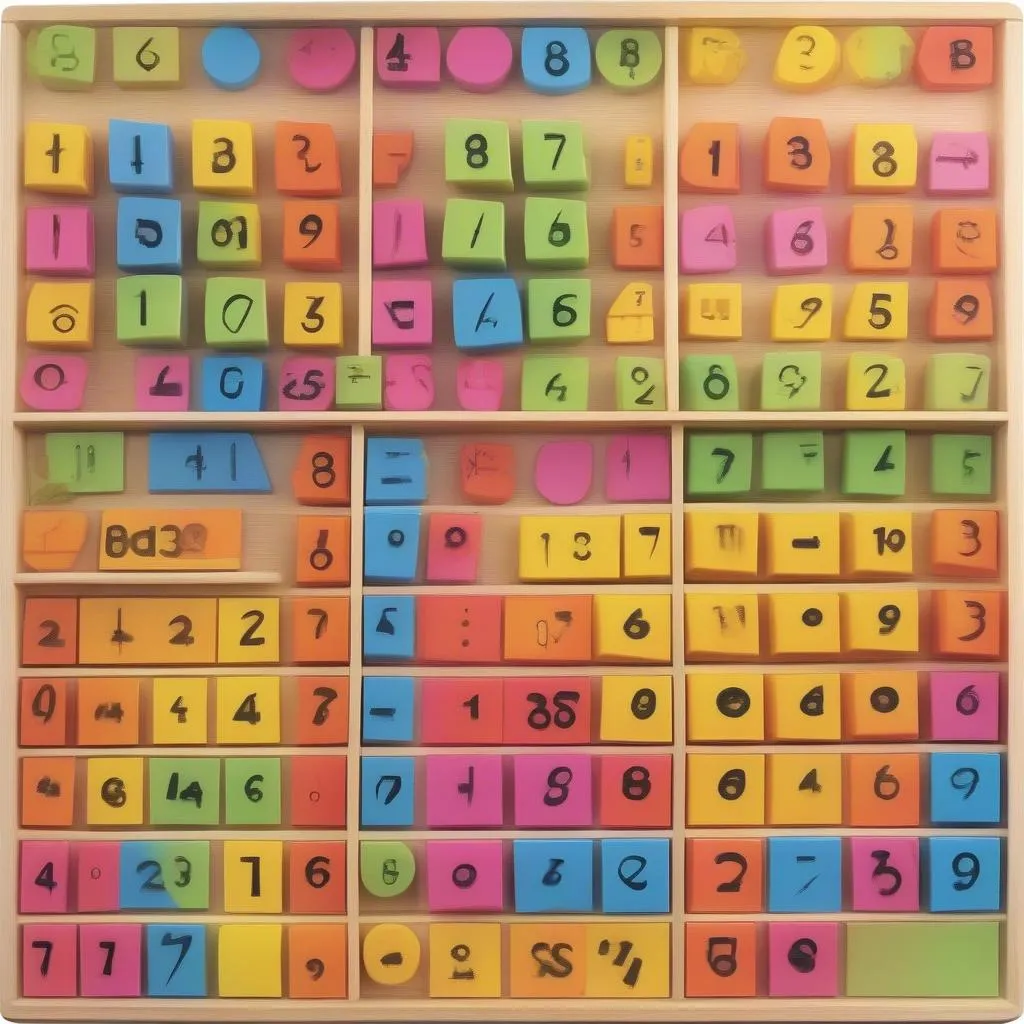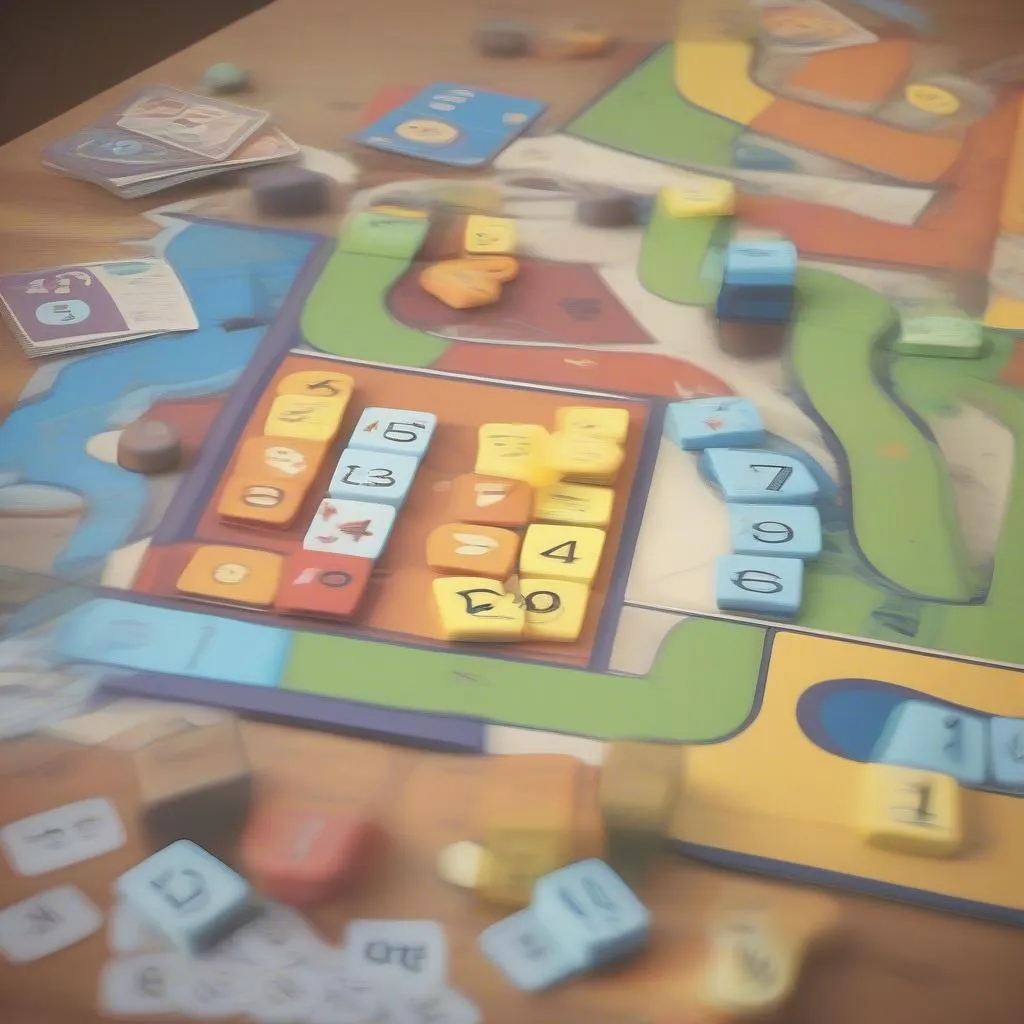“Teaching children math is like teaching birds to sing; you need to create a favorable environment for them to naturally absorb knowledge.” This quote by GS. Nguyen Van Minh, a renowned Vietnamese educator, partly affirms the importance of making learning math enjoyable for children from a young age. And toys are the key to helping children explore the world of mathematics in a fun and effective way.
The Fascinating World of Math Through Toys
You might think math is dry and boring, but with smart math toys, children will experience a colorful and engaging world of mathematics.
1. Must-Know Benefits
- Develop Logical Thinking: Shape sorting games, building blocks, and counting boards help children train logical thinking, analysis, and problem-solving skills.
- Enhance Recognition Skills: Math toys with diverse colors and shapes help children easily recognize basic concepts such as quantity, geometry, and arithmetic operations.
- Improve Motor Skills: Shape sorting, puzzle, and movement games help children develop fine motor skills, hand-eye coordination, and enhance dexterity.
- Boost Creativity: Math toys are often designed with various ways to play, helping children freely create and explore new things.
2. How to Choose Math Toys for Your Child?
- Age Appropriateness: Choose toys that match your child’s learning ability and development stage. For example, for a 3-year-old, you can choose simple shape sorters or counting boards with easily recognizable numbers.
- Safe Materials: Opt for toys made from safe materials, free from harmful chemicals to ensure your child’s health.
- Variety of Themes: Choose toys with different themes to create interest and stimulate your child’s curiosity.
Some Suggested Math Toys for Preschoolers
1. Building Blocks:
 Colorful building blocks for preschoolers
Colorful building blocks for preschoolers
Building blocks are one of the most popular math toys. Children can use building blocks to create shapes, learn to calculate area, volume, size, and colors.
2. Abacus:
 Abacus for preschool math learning
Abacus for preschool math learning
The abacus helps children become familiar with numbers and simple arithmetic operations, and trains their memory and quick reflexes.
3. Tabletop Games:
 Tabletop math game for preschool education
Tabletop math game for preschool education
Tabletop games help children learn math through play activities. Children can play shape sorting games, number finding, and puzzles to train logical thinking, problem-solving skills, and get acquainted with basic math concepts.
Tips to Help Your Child Love Math From an Early Age
- Create a Fun Learning Environment: Turn learning math into a fun game, full of laughter and encouragement.
- Teach Through Play: Use toys, games, and real-life activities to help children absorb knowledge naturally.
- Praise and Encourage: Praise your child’s efforts and encourage them to continue learning and exploring.
Advice from Experts:
Mr. Nguyen Van Tuan, Early Childhood Education Expert: “Let children experience mathematics naturally, without coercion, but through play. Toys are a great tool to help children absorb knowledge in a fun and effective way.”
Note:
To ensure learning effectiveness, you should choose math toys that are appropriate for your child’s age and abilities. Monitor and support your child during play so they can develop skills comprehensively.
Learn more:
You can learn more about types of math toys, how to choose and use toys effectively for your child on our website:
- http://tuoitho.edu.vn/giao-duc-steam-mam-non/
- http://tuoitho.edu.vn/giao-an-mot-ngay-cua-be-o-truong-mam-non/
Let your child love math from an early age, and you will see miracles in your child’s journey of exploring the world of mathematics!